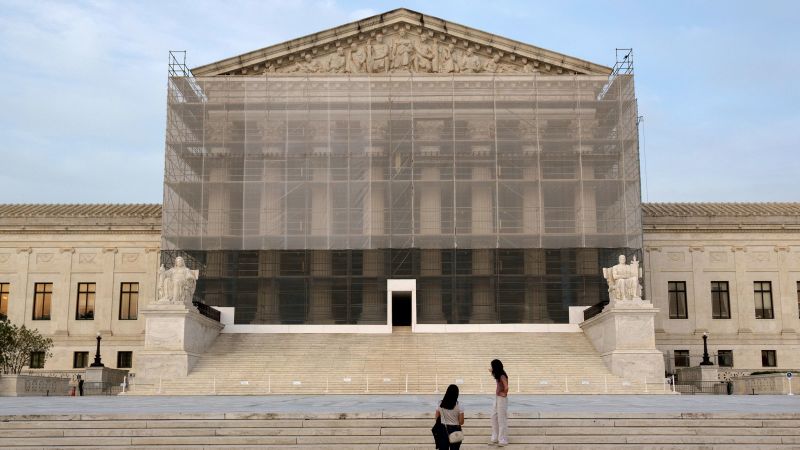The Supreme Court will hand down its final decisions of the term on Friday, including an expected high-profile ruling on whether President Donald Trump may enforce his divisive executive order curtailing birthright citizenship.
As is tradition, Chief Justice John Roberts announced the final day from the bench.
The schedule sets up a blockbuster last day at the Supreme Court in which the justices will hand down six opinions in some of the biggest cases of the year, including those dealing with Trump’s birthright citizenship order, a challenge from religious parents who want to opt their children out of reading LGBTQ books in school and a First Amendment suit over aTexas law that requires people to verify their agebefore accessing porn online.
Every year, the high court tries to finish its work by July, though it is unusual for the justices to bunch so many closely watched cases into the final day. Last year, the court handed down three opinions on the final day – including the decision grantingTrump immunity from criminal prosecution. Two years ago, the court issued three opinions, including a ruling shutting down President Joe Biden’s student loan relief program.
Among the cases still pending: the court will decide whether a school district in suburban Washington, DC, burdened the religious rights of parents by declining to allow them to opt their elementary-school children out ofreading LGBTQ books in the classroom.
The court will also decide the fate of a government task force that recommends whichpreventive health care servicesmust be covered at no cost under Obamacare. And it will decide a challenge overLouisiana’s congressional districtsthat questions how far states may go in considering race when they draw maps to fix a violation of the Voting Rights Act.
But by far the most significant decision is likely to be the one dealing with Trump’s birthright citizenship order.
The Trump administration asked the Supreme Court to limit the scope of so-called nationwide injunctions that lower courts have issued with increasing frequency, slowing down aspects of the president’s agenda. During oral arguments, several conservative justices signaled concern with nationwide injunction but also seemed uneasy letting the president temporarily enforce a policy that flaunts the 14th Amendment.
The court did recently hand down one of its most important decisions. Last week, the court’s conservative majority upheld a Tennessee law that banned gender-affirming care for trans minors. Roughly half of the nation’s states have bans similar to Tennessee’s.
